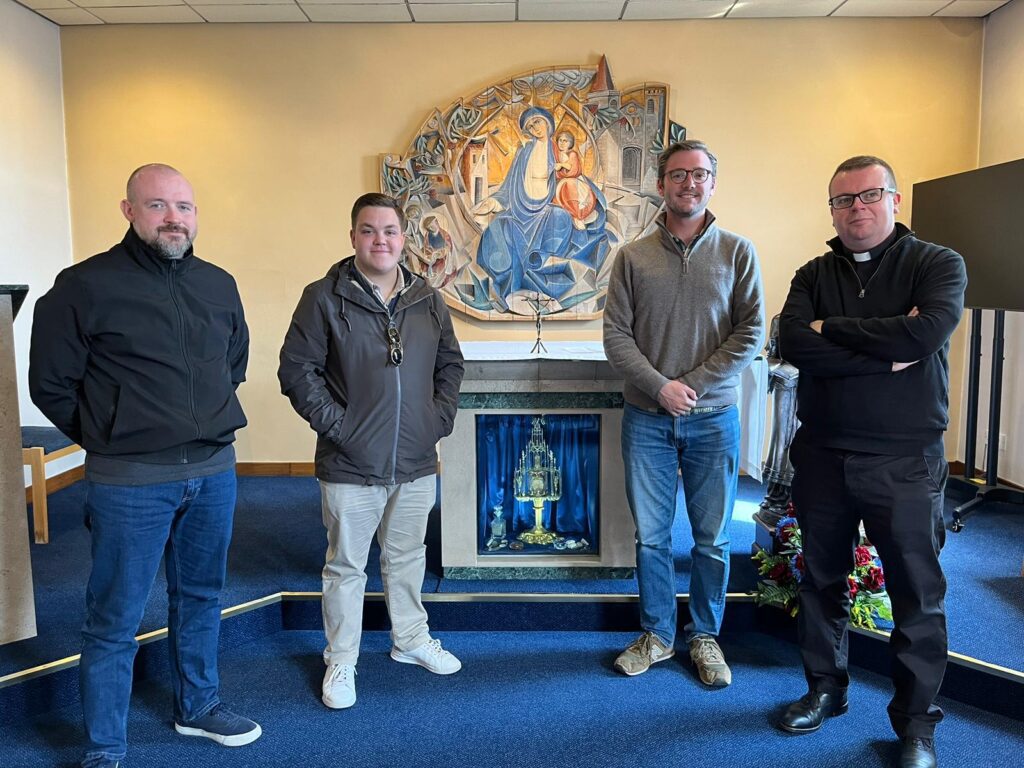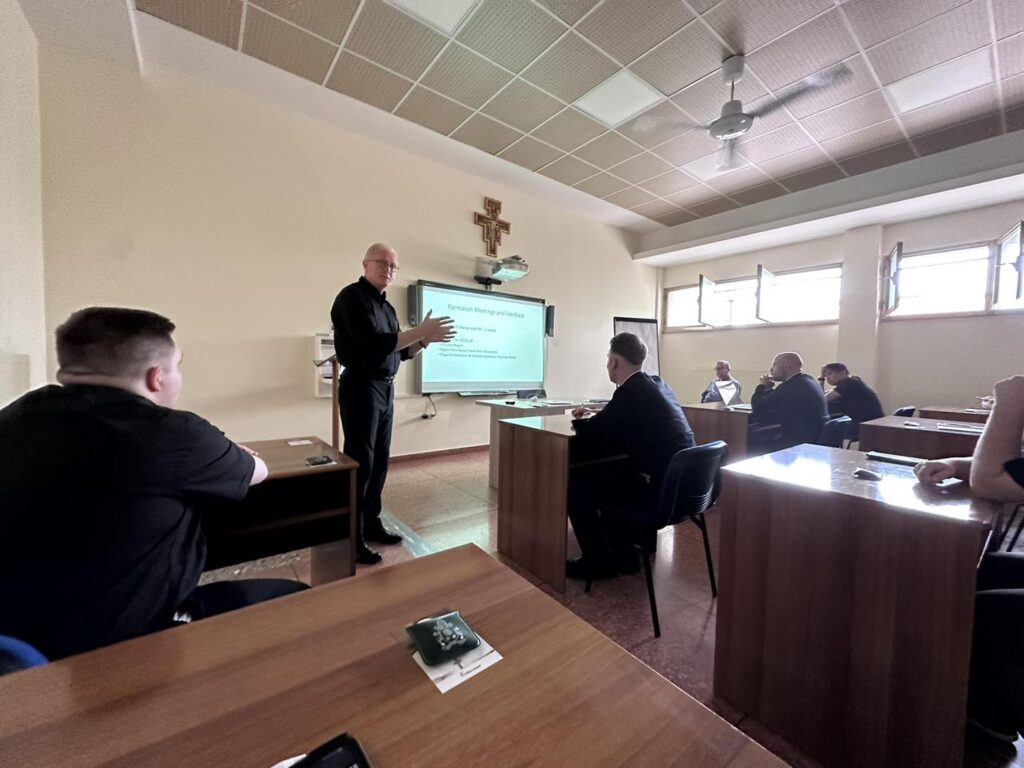Q&A: My journey to the diaconate
This Saturday Matthew McCafferty from Bathgate (centre, main pic) will be ordained a Deacon in Rome by Archbishop Cushley.
It is a final step for the 30-year-old seminarian on his journey to the priesthood.
We asked him about life in Rome and his vocation as we look towards World Day of Prayer for Vocations this Sunday.
Where are you being ordained a deacon?
The Papal Basilica of St Paul Outside the Walls. I will be ordained with Kieran Burt of the Diocese of Motherwell. Kieran and I have been together in seminary for over six years so it will be special to be ordained alongside him.
What did you do before entering seminary in 2019?
I studied History at the University of St Andrews before completing teacher training at the University of Glasgow. I worked briefly as a history teacher at Holyrood Secondary in Glasgow and Taylor High School in Lanarkshire.
What's a typical day like for a seminarian in Rome?
There is and Mass with the rest of the Scottish seminarians at the Scots College at 6:30am. I then make my way to the Pontifical Gregorian University where classes begin at 8:30am. Back at the College, we either have input from the seminary staff on spiritual and pastoral formation or we head out into the city to our various pastoral assignments. We conclude each day with evening prayers and dinner together in the seminary.

How has living in Rome shaped your spiritual and personal growth?
One of the great privileges is that we attend classes with other seminarians, priests, religious, and lay people from all over the world. The universality and Catholicity of the Church is constantly on parade in Rome, and no more so than in this Jubilee Year. There are churches here that have served as sites of Christian worship for 1700 years, and many of them contain the relics of well-known saints. Attending Mass at these locations has deepened my appreciation for the rich traditions of our faith and heightens the sense of belonging to something much bigger and greater than ourselves.
I have been lucky to learn from some great priests in parishes across the Archdiocese.
What does being a deacon involve?
A deacon is ordained to serve the People of God and specifically to assist at the altar during Mass. This means that a deacon can proclaim the Gospel and preach, as well as conduct funerals and baptisms. I will be ordained a transitional deacon (as opposed to a permanent deacon) which means that it serves as a kind of ‘final step’ closer to the altar in preparing for ordination to the priesthood.
What preparation do you do to become a deacon?
Ordination to the Diaconate comes after two years spent studying Philosophy, followed by four years studying Theology. During that time we also undertake practical experience at parishes in Scotland and in Rome. I have been lucky to learn from some great priests in parishes across the Archdiocese.

What advice would you give to someone who feels they might be called to a religious vocation but is unsure?
Firstly, it’s so important to pray consistently, asking God to help you to understand what it is He wants from you in your life. Secondly, it’s really helpful to talk to someone about it, ideally a priest. It does not mean that he will sign you up there and then! But the mere act of vocalising these thoughts and prayers can really help with gaining some clarity. Lastly, seize the moment and act! It’s tempting to be a ‘perpetual discerner,’ toying with the idea of the priesthood or religious life but putting off pursuing it. Patience is key in discerning a religious vocation, but at a certain point God calls us all to action. That action might simply be talking to a friend, family member, or priest for the first time, or it might be contacting the Vocations Director.
Normalising publicly praying for vocations in our parishes, schools, and university chaplaincies is very important.
Are there any saints or role models who have influenced your path to the priesthood?
I’ve been lucky to have been influenced by the witness of many priests in our Archdiocese while on parish placements. They have been great examples of commitment and deep faith. But above all, I have been struck by the joy with which they live out their priesthood. I would also say that I’ve been very fortunate to have lived and studied with some great friends in the seminary. It’s been hugely inspiring to see them making such a positive contribution to the Church in the real world outside seminary.
What message would you share about supporting vocations on the World Day of Prayer for Vocations?
Please pray for those currently studying for the priesthood and for an increase in vocations to the priesthood. It is a huge support to know that people at home are keeping us in their prayers. I don’t think vocations just appear in a vacuum; rather, they are often the product of a sustained culture in any given place which offers spiritual and emotional support to those making the first tentative steps to exploring what God is asking of them in their lives. So, I think normalising publicly praying for vocations in our parishes, schools, and university chaplaincies is very important.
If you feel you may be called to the priesthood or religious life, contact our Vocations Directors here. World Day of Prayer for Vocations is this Sunday. A special collection will take place for the Ecclesiastical Students Fund, which helps cover tuition fees and living costs for our seminarians. You can also donate at bit.ly/eccstudents25.
